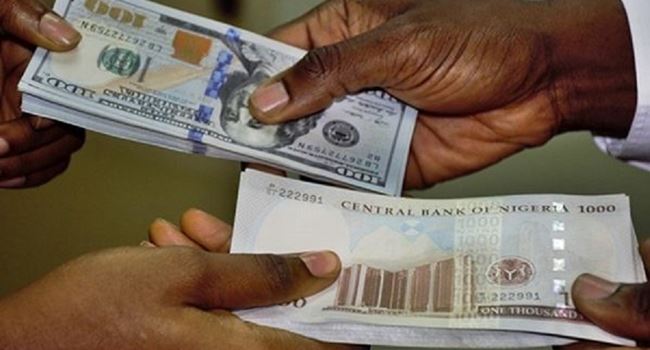The Nigerian naira witnessed a continued decline against the U.S. dollar on Monday, January 22nd, 2024, both in the official and unofficial markets.
In official trading on NAFEM, the naira depreciated by 2.54%, closing at N925.34 against the dollar. This represents a loss of N22.89 or a 2.54% decrease compared to the previous day’s rate of N902.45.
Simultaneously, in the parallel forex market, where unofficial transactions occur, the exchange rate quoted was N1360/$1, indicating a 0.74% decrease from the previous day. Peer-to-peer traders quoted around N1371.02/$1.
Key Points:
- Credit ratings agency Fitch recently highlighted the Central Bank of Nigeria’s (CBN) ongoing struggle with a shortage of foreign exchange to clear the forex backlog.
- The country’s high debt service to revenue ratio contributes to a challenging sovereign credit rating.
- Gaimin Nonyane, Fitch’s Director of Middle East and Africa Sovereigns, noted that Nigeria’s ongoing foreign exchange shortages would exert pressure on the naira, emphasizing the 30% disparity between official and parallel exchange rates.
- The CBN has initiated clearing a backlog of FX forwards for companies looking to repatriate funds abroad. The estimated total backlog is around $7 billion, with the central bank stating it has cleared approximately $2 billion in the past three months.
- Despite macroeconomic challenges, Fitch rated Nigeria at B- with a stable outlook. Concerns include record-level inflation, a weakening naira, and subdued crude oil production.
- Nigeria’s debt levels have raised alarms, with a debt service to revenue ratio reaching 183% in Q1 2023. The total public debt as of Q3 2023 stands at N87.9 trillion.
- In the 2024 budget proposal, the federal government plans to borrow N7.83 trillion to address a deficit of N9.18 trillion. Efforts are underway to reduce reliance on debt and boost revenue through the Committee on Fiscal Policy and Tax Reforms.
Tags: Naira


